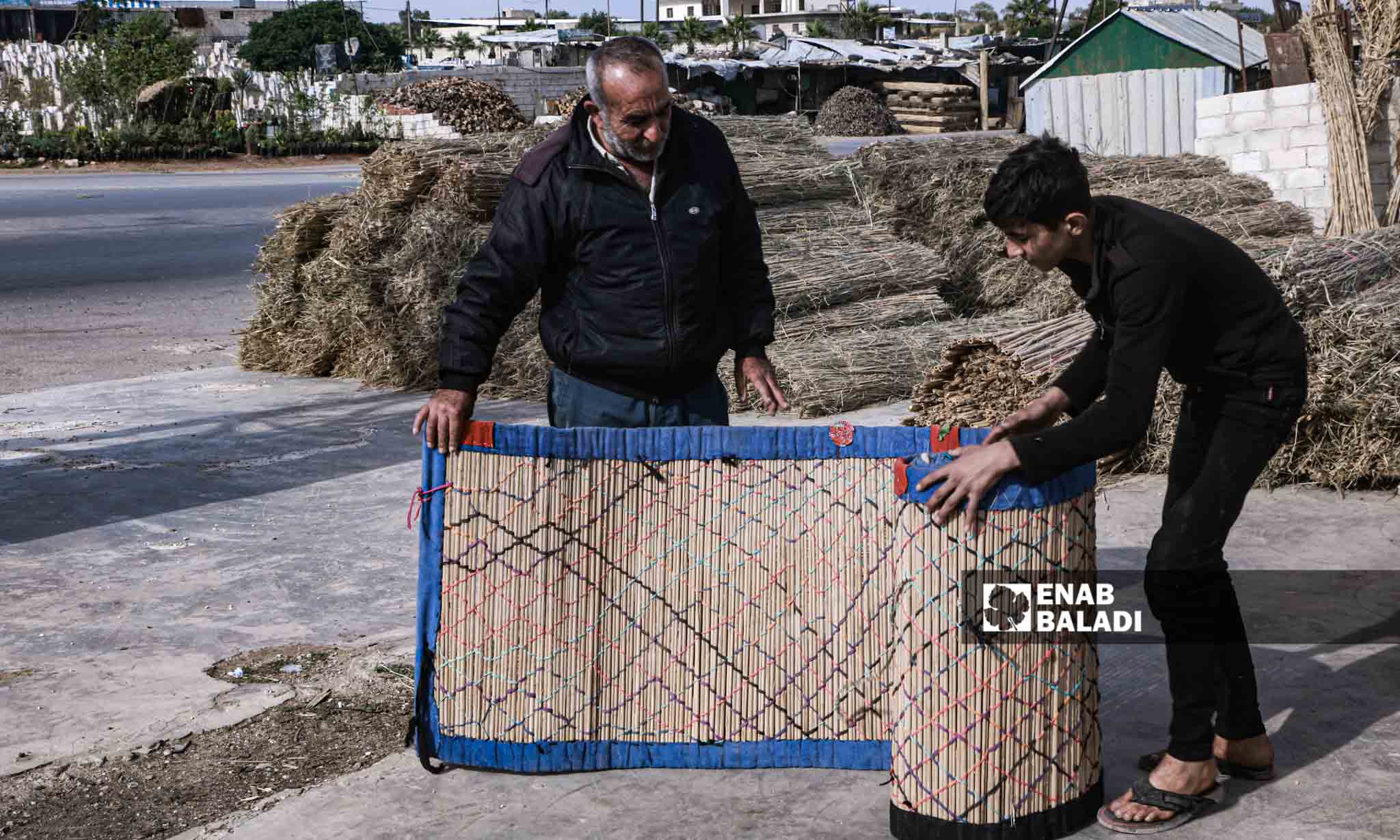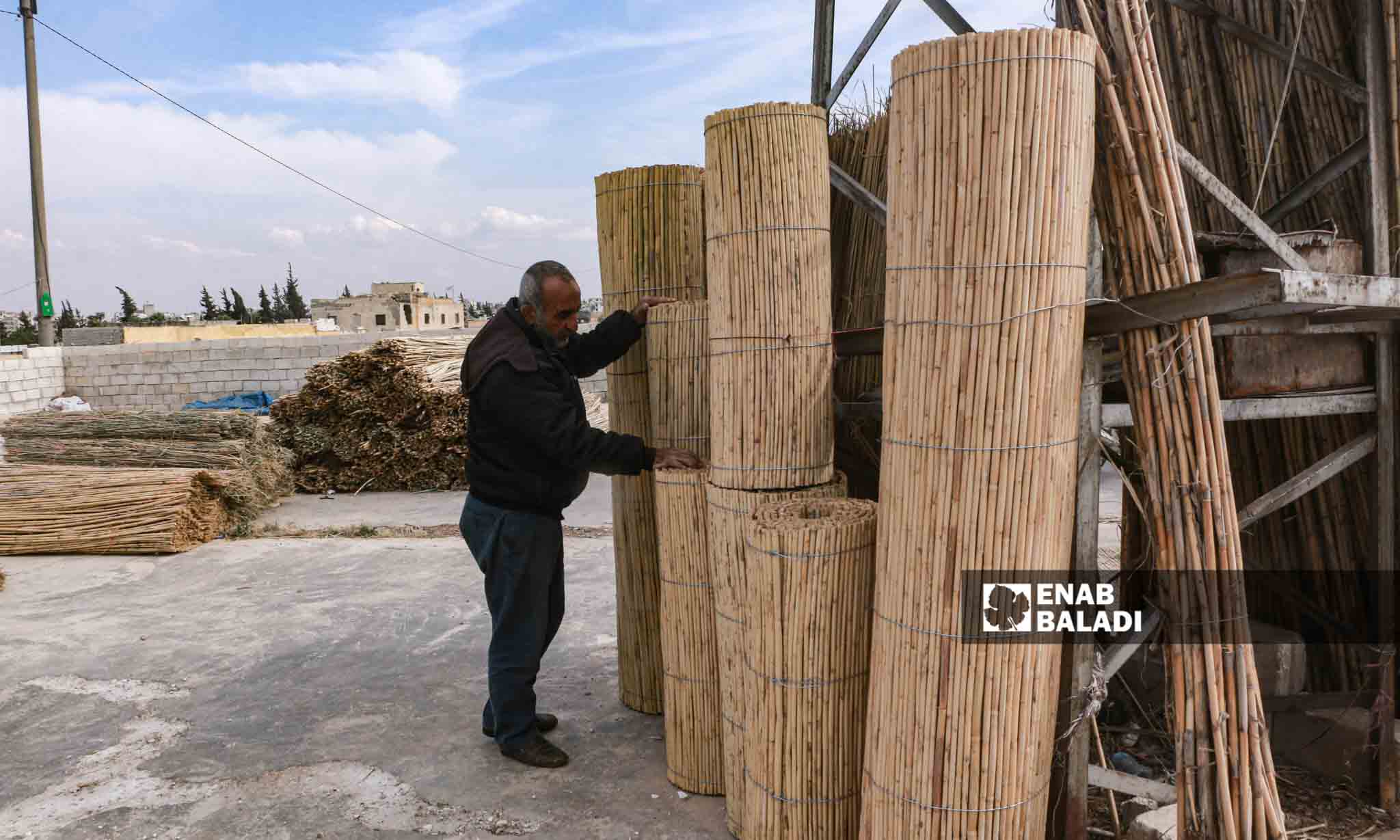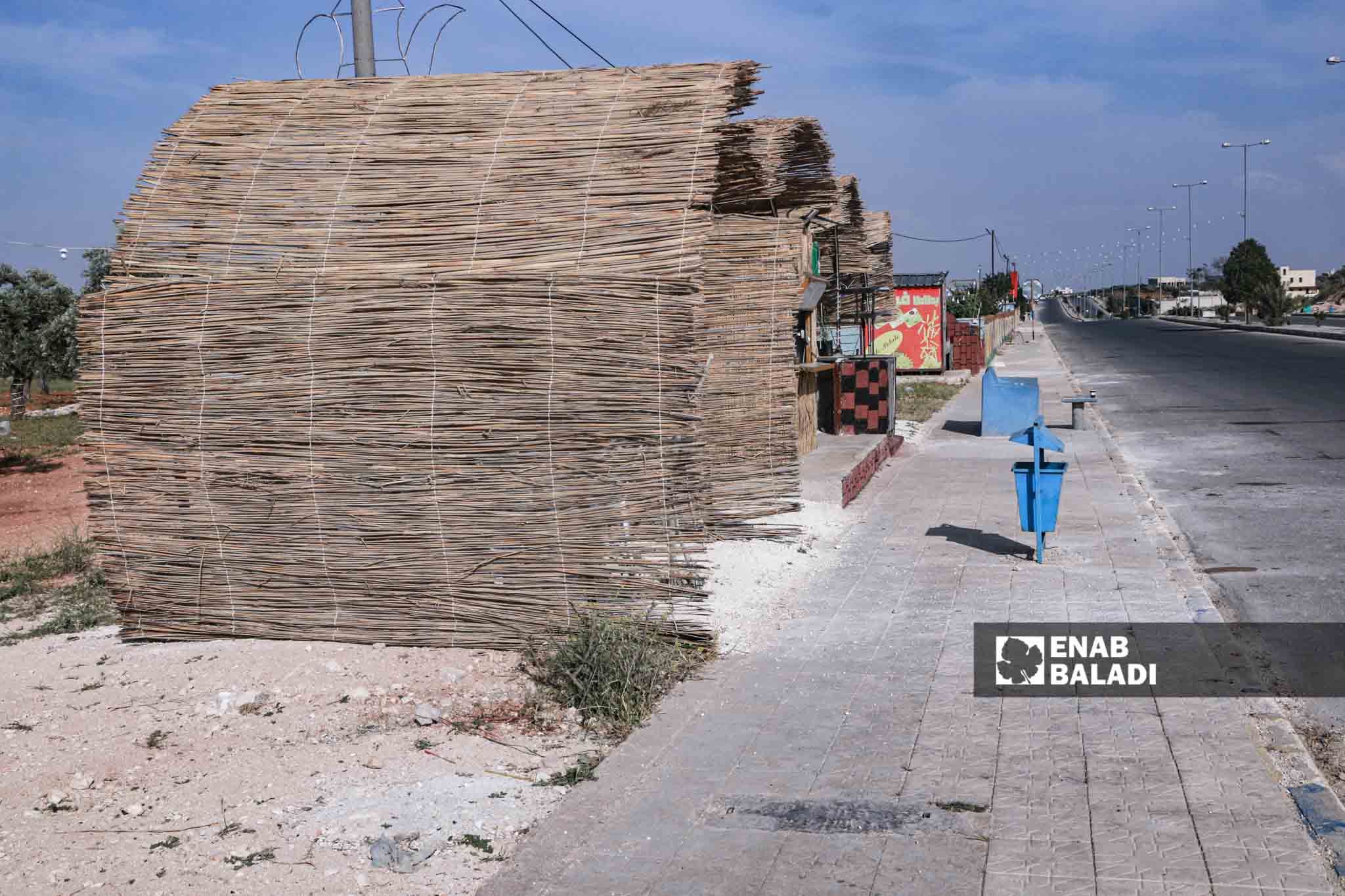



Idlib – Anas al-Khouli
With rough, tired hands, the 42-year-old Hind Othman stacks the cane sticks side by side and ties them together tightly to form a reed mat, which she sells at a low price, even though she needs a full day of work.
Othman works with reed mats to help her husband in light of the high cost of living in the northwestern city of Idlib.
The IDP woman who resides on the outskirts of Idlib said that she learned the craft from her husband, who inherited it from his family, and that this craft was their source of livelihood during the past difficult years in light of the lack of job opportunities and suffocating living conditions.
At best, Othman needs a full day to produce one and a half or two three-meter mats, and her husband sells a meter for about $2.
In the past, the residents of the areas adjacent to the reeds used to make rugs, but the displacement operations to escape the military operations carried out by the Syrian regime, forced many of them to reside in other places trying to find new job opportunities, and the rest of them learned to collect cane sticks and supply them to the displaced craftsmen.
According to Othman, reed mats are made by collecting and stacking reeds and some sticks and tying them together. It is a simple industry that does not require many tools for production, as it is sufficient to have iron rods and strings for tying and simple weights to tighten the strings, and the weights are often water containers filled with cement.
As for the most prominent difficulties, it is represented in the process of transporting the cane from its plant to the places where the mats are made, which takes about half a day.

Ismail Abdulrahman, a maker of reed mats in the city of Idlib – May 23, 2023 (Enab Baladi/ Anas al-Khouli)
The manufacture of mats is one of the crafts that the Idlib region is famous for, and it belongs to an ancient heritage, and today it provides its artisans with a reasonable window in the face of economic hardships.
Ismail al-Mohammad, 52, a former policeman who defected from the regime and hails from Jabal al-Zawiya, told Enab Baladi that he turned to the trade and manufacture of reed mats due to the lack of job opportunities on the one hand and to preserve the city’s heritage on the other hand.
Al-Mohammad learned this industry in his youth and returned to it with the lack of job opportunities. He moved away from it for a period of time due to the lack of demand for mats, which led to the abandonment of many craftsmen.
The season for making reed mats begins at the beginning of spring and continues until the beginning of winter. Today, they are used to put them on the roofs of tents to reduce the summer heat, to create a summer majlis on the roofs of houses, or to shade open places such as swimming pools.
Al-Mohammad buys cane sticks from vendors on the banks of rivers in the regions of Darkush or Afrin.
Sticks also grow in the al-Rouj Plain, but their quality is lower, he adds.
There are two types of reeds, the first is broad, and the people call it the (regular) “Nizami,” and it is used in the manufacture of mats for shading, and the best types are those that come from the Jisr al-Shughour area.
As for the second, it is the thin type, and it is called “Zarb,” and it is used for decoration.
The price of one mat with a length of five meters is 200 Turkish liras, but the demand for it is low due to the weak purchasing power.
Daily wages in the city of Idlib range between 30 and 60 Turkish liras, depending on the profession, such as construction, agriculture, and loading goods, and the different number of working hours, at an unstable pace due to the availability of such jobs. Such salaries do not meet the minimum needs of the family.

A shop for the manufacture and trade of reed mats in Idlib city – May 23, 2023 (Enab Baladi/ Anas al-Khouli)
Saleh al-Abdullah, 49, a displaced person from the al-Ghab Plain who resides in one of the Atma camps, collects cane sticks from the banks of rivers in Afrin and the surrounding areas and sells them in Idlib.
He said that after the displacement of the craftsmen and the reed makers and their departure from their areas, they began to buy cane sticks after they used to collect them themselves.
Al-Abdullah sells one square meter of cane for ten Turkish liras after cutting it, arranging it and sorting it according to size, then loading it and transporting it to the workshops.
There are many commodities in which cane is used, such as baskets, vases, and some household utensils, in addition to making some types of flutes.
According to al-Abdullah, the profession of collecting reeds was previously unknown to many, but it provided new job opportunities for some people, and it is linked to the demand for reed mats.
The greater the demand for mats, the greater the demand for reeds for craftsmen, hoping that this year the demand will be better than in previous years.
if you think the article contain wrong information or you have additional details Send Correction